THURSDAY 1 - Kinuyo Tanaka, Actress and Auteur
Programmed by: Kathleen Geier
Kinuyo Tanaka has long been celebrated as one of the greatest actresses of golden-age Japanese cinema. Working with iconic directors such as Ozu, Naruse, and above all Mizoguchi (Life of Oharu), Tanaka created strong, soulful, unforgettable portraits of modern and traditional Japanese women.
What’s less well-known is that in 1953, she became only the second Japanese woman ever to direct a film. Over the next decade, she would direct five more films that were notable for their pioneering depictions of female experiences most other films ignored. Tanaka’s films incisively examined subjects like sex work, breast cancer, female sexuality, and women’s colonial experiences. Her work was well-received in Japan, but virtually unknown elsewhere.
Tanaka’s path to the director’s chair was not easy. Mizoguchi used his position as Chair of the Director’s Guild to block her from being allowed to direct. But other directors were far more supportive: Naruse hired her as an assistant for one of his films, and Ozu and Kinoshita provided scripts for the first two films she directed.
Doc Films is thrilled to present 4K restorations of all six Tanaka-directed films. In 2022 and 2023, a touring retrospective of these films won international acclaim, yet none of these titles have been publicly screened in Chicago before, nor have they been released in North American home video format. And until recently they were unavailable in streaming format.
Forever a Woman (1955)
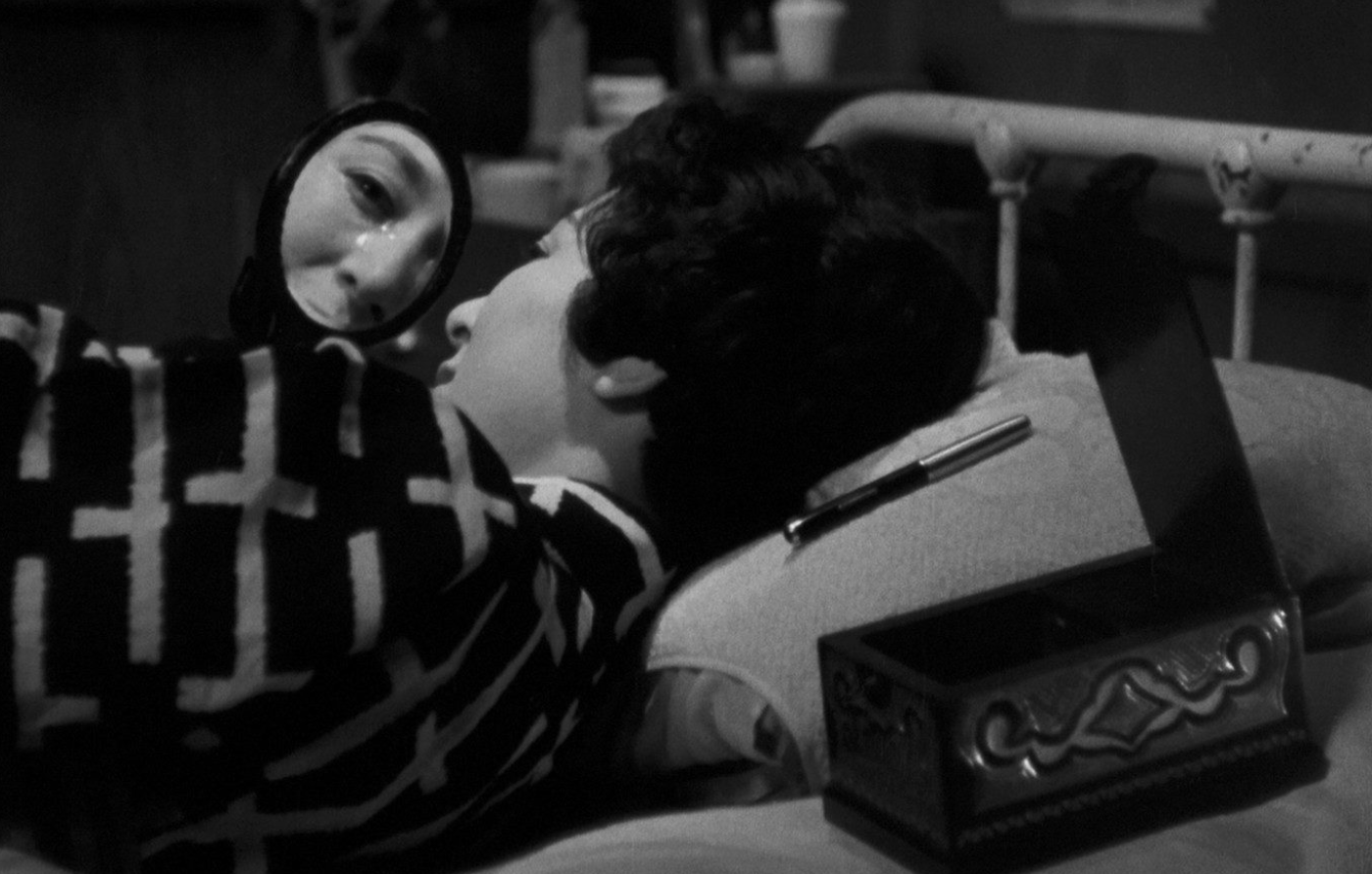
Kinuyo Tanaka · 110m · DCP
Forever a Woman tells the true story of tanka poet Fumiko Nakajō. After leaving her husband, Fumiko enjoys literary success and a passionate love affair, only to face a devastating diagnosis of breast cancer. Widely hailed as Tanaka's masterpiece, this sensuous and heartrending film has been praised for its exhilaratingly frank depiction of what it means to be an artist and a woman.
Thursday, March 21st 7:00PM
Sansho the Bailiff (1954)
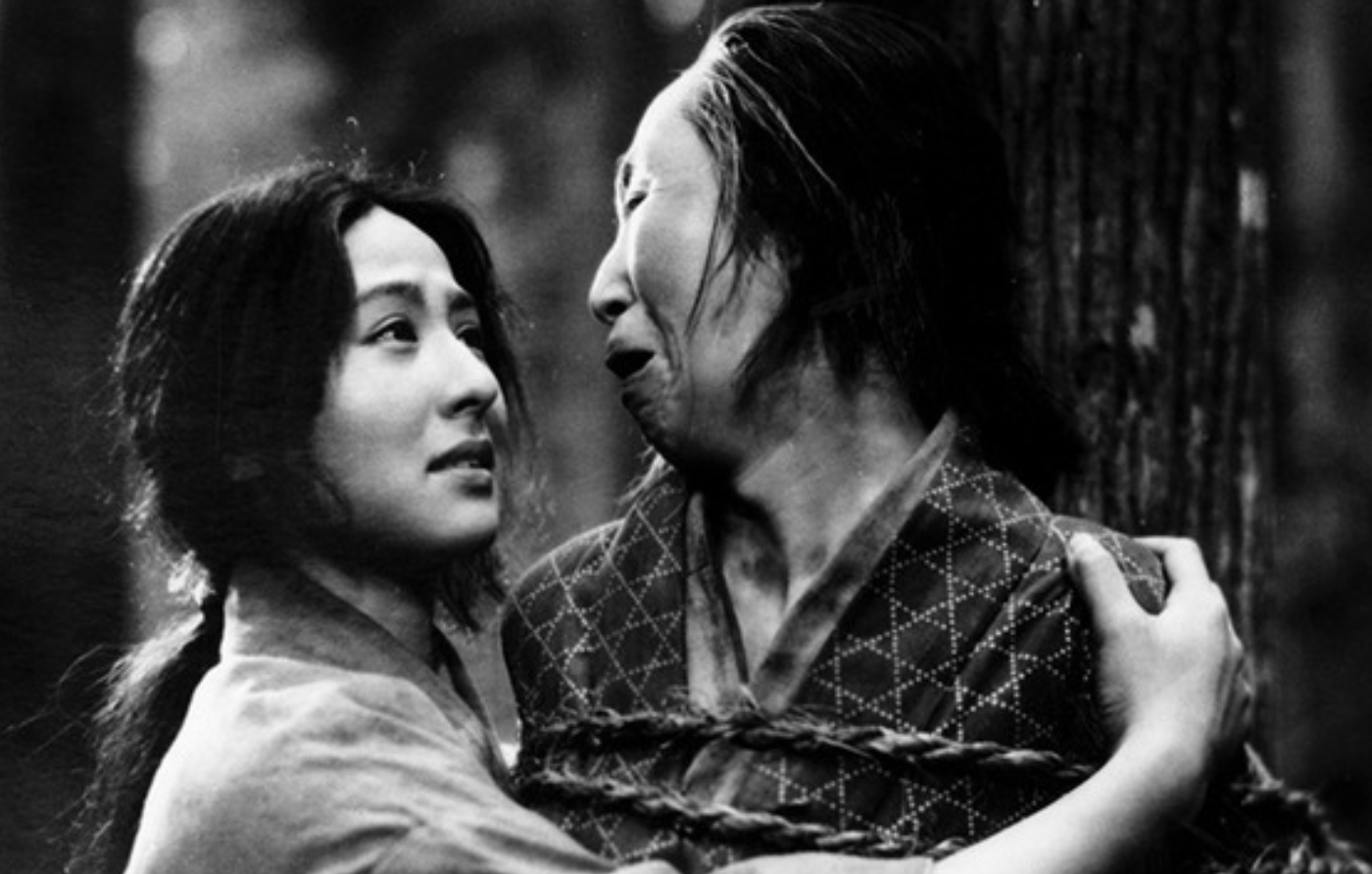
Kenji Mizoguchi · 124m · DCP
This is one of the greatest films ever made, and a sublime and emotionally overwhelming cinematic experience. In medieval Japan a family is torn apart, with the children sold into slavery. Amidst great suffering they learn to take to heart their father’s maxim that “without mercy, a man is not a man.” Tanaka’s appearance in the electrifying final scene may be her most indelible moment as an actress.
Thursday, March 28th 7:00PM
Love Letter (1953)
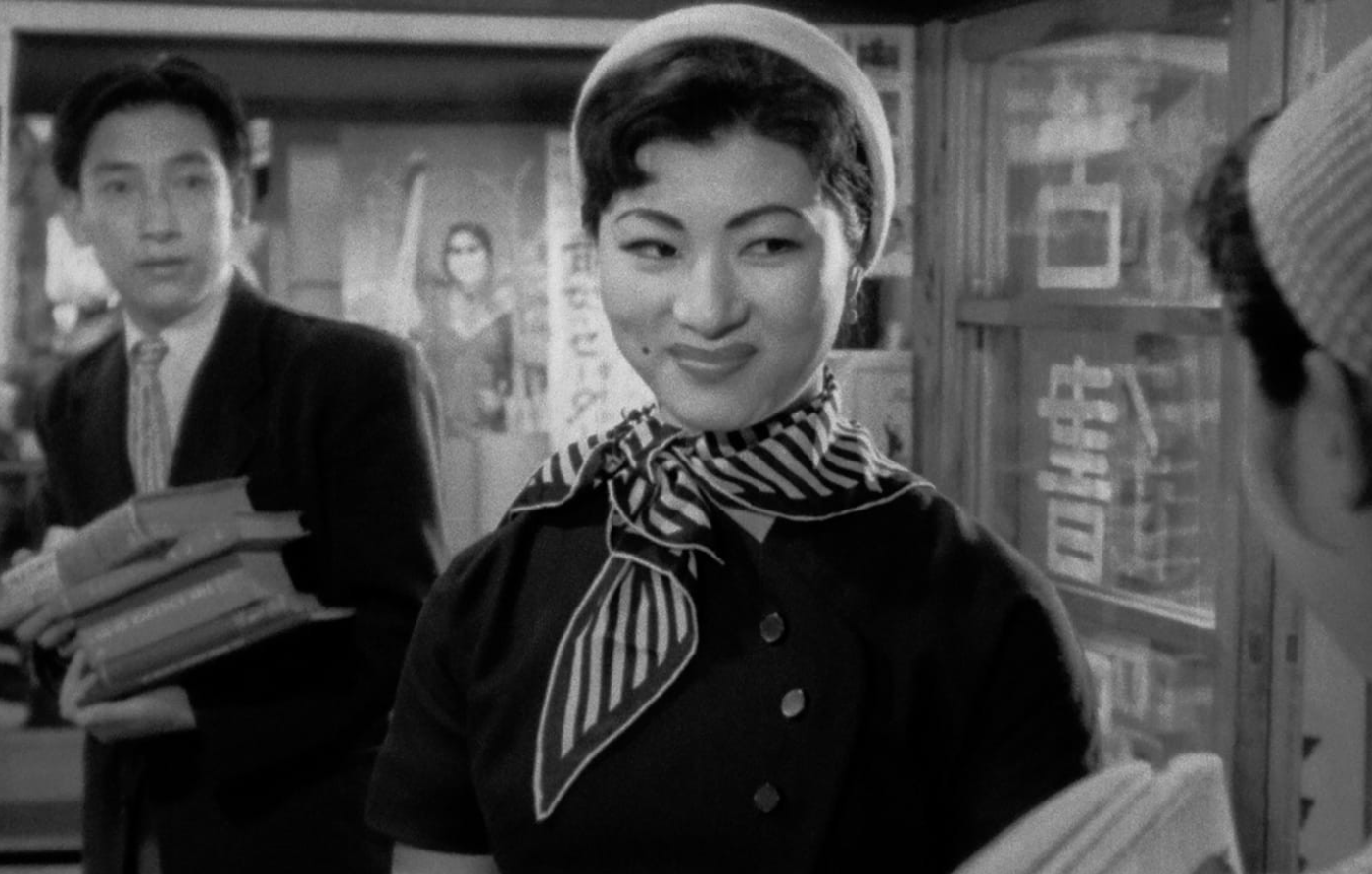
Kinuyo Tanaka · 98m · DCP
In this sensitive melodrama, a traumatized veteran finds a job writing love letters from Japanese women to the G.I.s who left them behind. His ideas about love and honor are tested when he reconnects with an ex-girlfriend with her own dark story to tell. Shot in the bustling alleyways of Shibuya, Tanaka’s directorial debut was well-received at Cannes and by Japanese audiences and critics alike.
Thursday, April 4th 7:00PM
Ugestu (1953)
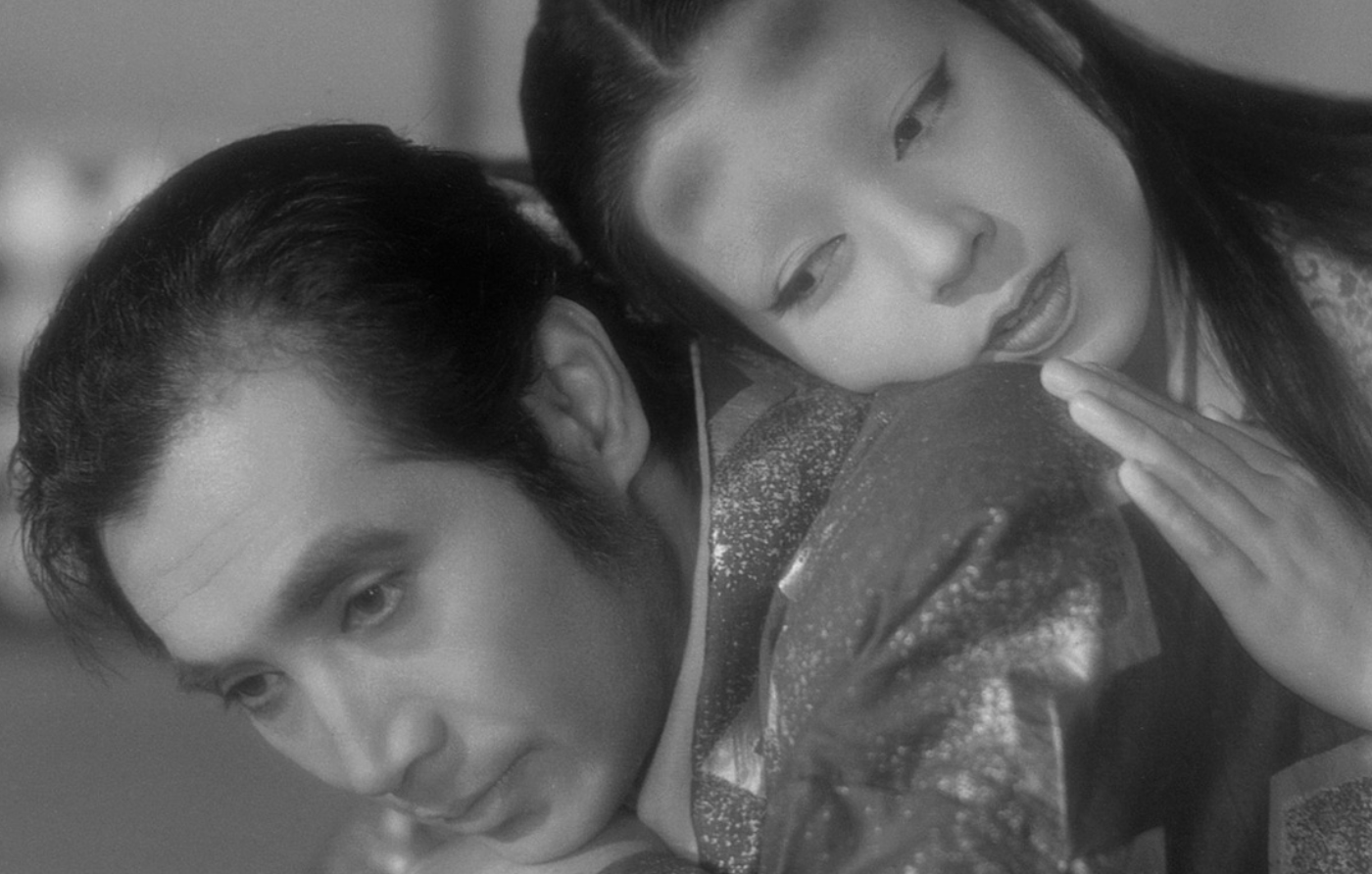
Kenji Mizoguchi · 97m · 16mm
Print courtesy of a fellow Mizoguchi enthusiast in the community. We thank them for their generosity.
A classic of world cinema, Ugetsu is a haunting fable about the illusory nature of human desire. In 16th-century Japan two peasants hit the road, abandoning their families to profit from the wartime demand for potters' wares. But as the potter's wife (Tanaka) sagely predicts, their plan ends in disaster. The gorgeously shimmering camerawork dissolves the boundary between fantasy and reality.
Thursday, April 11th 7:00PM
The Moon Has Risen (1955)
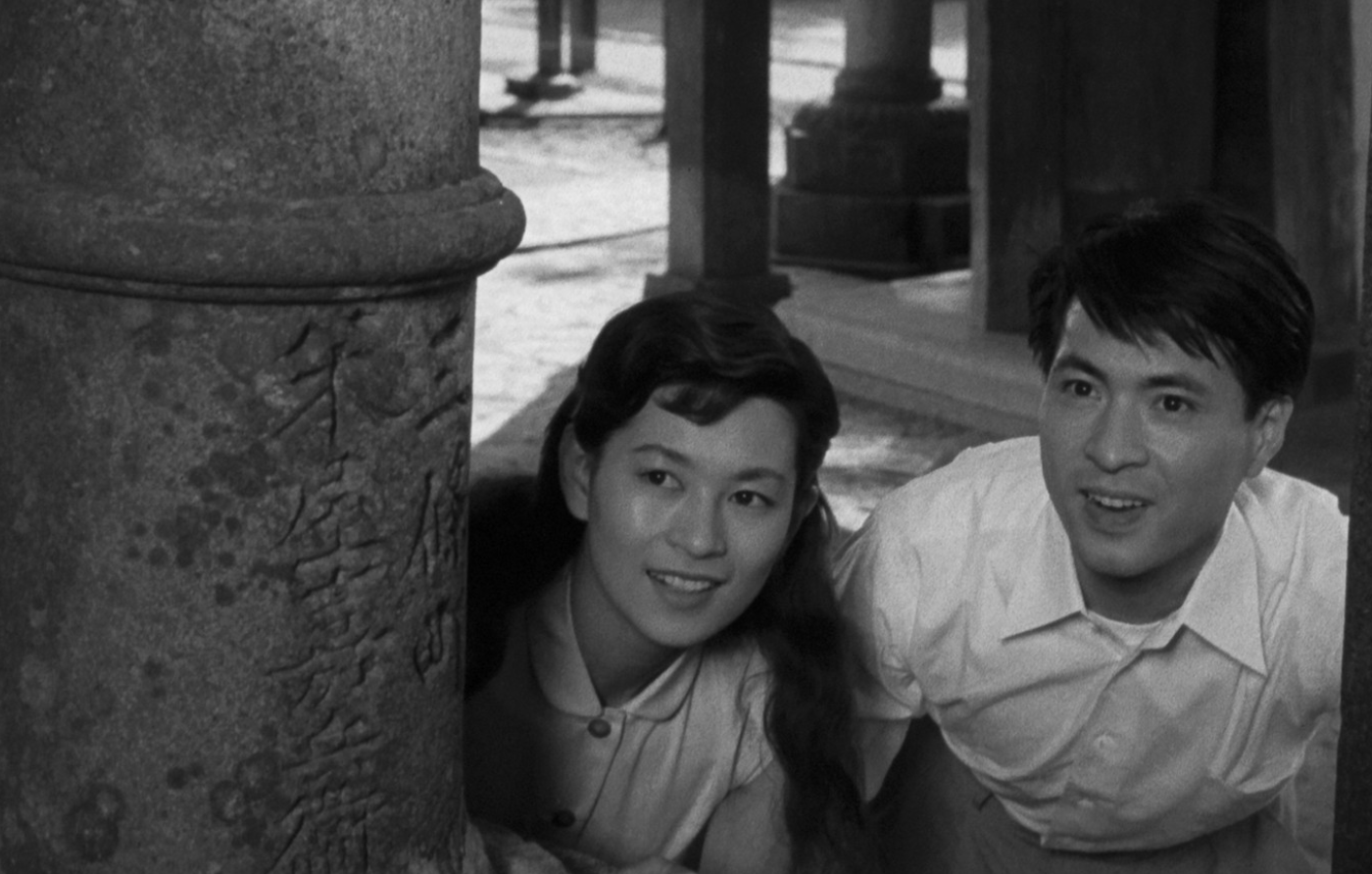
Kinuyo Tanaka · 102m · DCP
Scripted by the great Yasujirō Ozu, Tanaka’s second feature is a lively, charming romantic comedy. Set in Japan’s bucolic ancient capital of Nara and featuring Ozu favorite Chishū Ryū as well as future star Mie Kitahara, The Moon Has Risen follows the romantic travails of three sisters. The film shares many formal and thematic affinities with Ozu, but the distinctive vision and sensibility here are Tanaka’s own.
Thursday, April 18th 7:00PM
Dragnet Girl (1933)
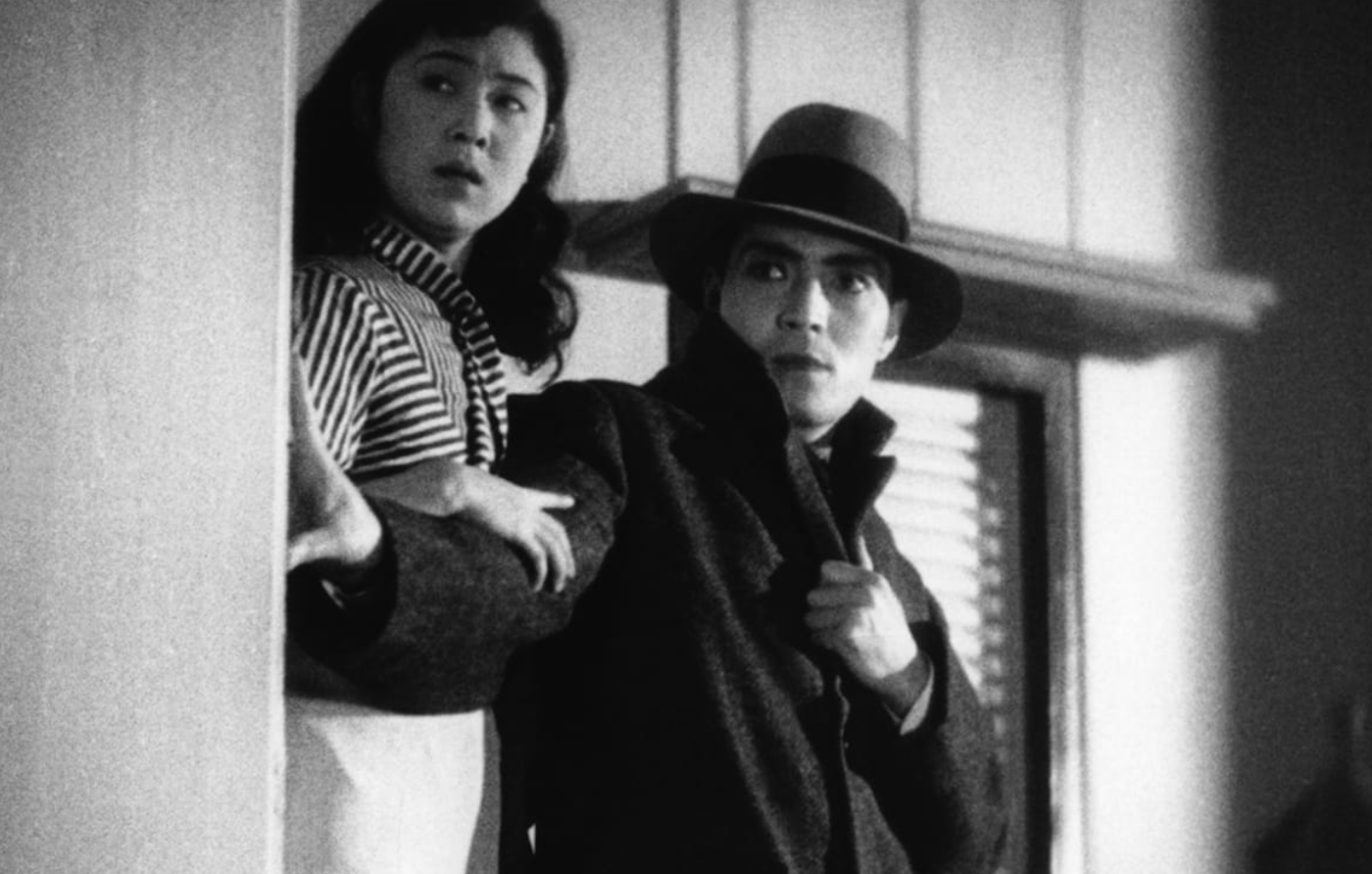
Yasujirō Ozu · 100m · DCP
Ozu found his greatest fame as the master of the postwar domestic drama, but years earlier he made this atmospheric and visually inventive proto-noir. It tells a psychologically complex story about the growing attraction between a mob boss and the naïve sister of his latest recruit. The young Tanaka shines as a woman who is a demure secretary by day and a gun-toting gangster’s moll by night.
Thursday, April 25th 7:00PM
The Wandering Princess (1960)
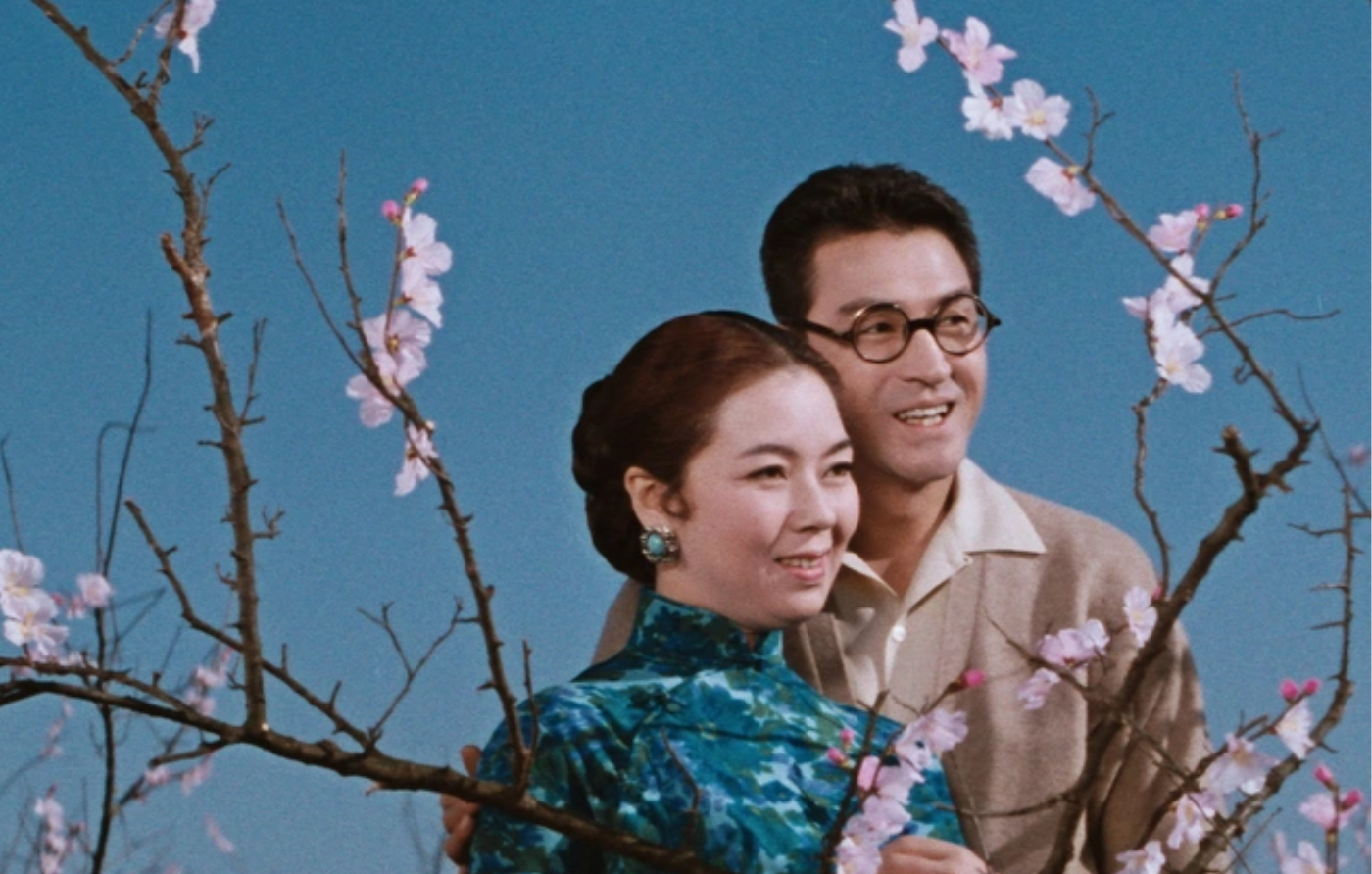
Kinuyo Tanaka · 102m · DCP
Shot in stunning color and Cinemascope, The Wandering Princess is a historical epic told from a female point of view. Based on a true story, it stars Machiko Kyō as a Japanese aristocrat who marries the brother of China’s last emperor. Critic Kelley Dong called the film “a perceptive portrayal of how a colonial empire manipulates images of womanhood for a nationalist cause without necessarily advancing women’s rights.”
Thursday, May 2nd 7:00PM
Girls of the Night (1961)
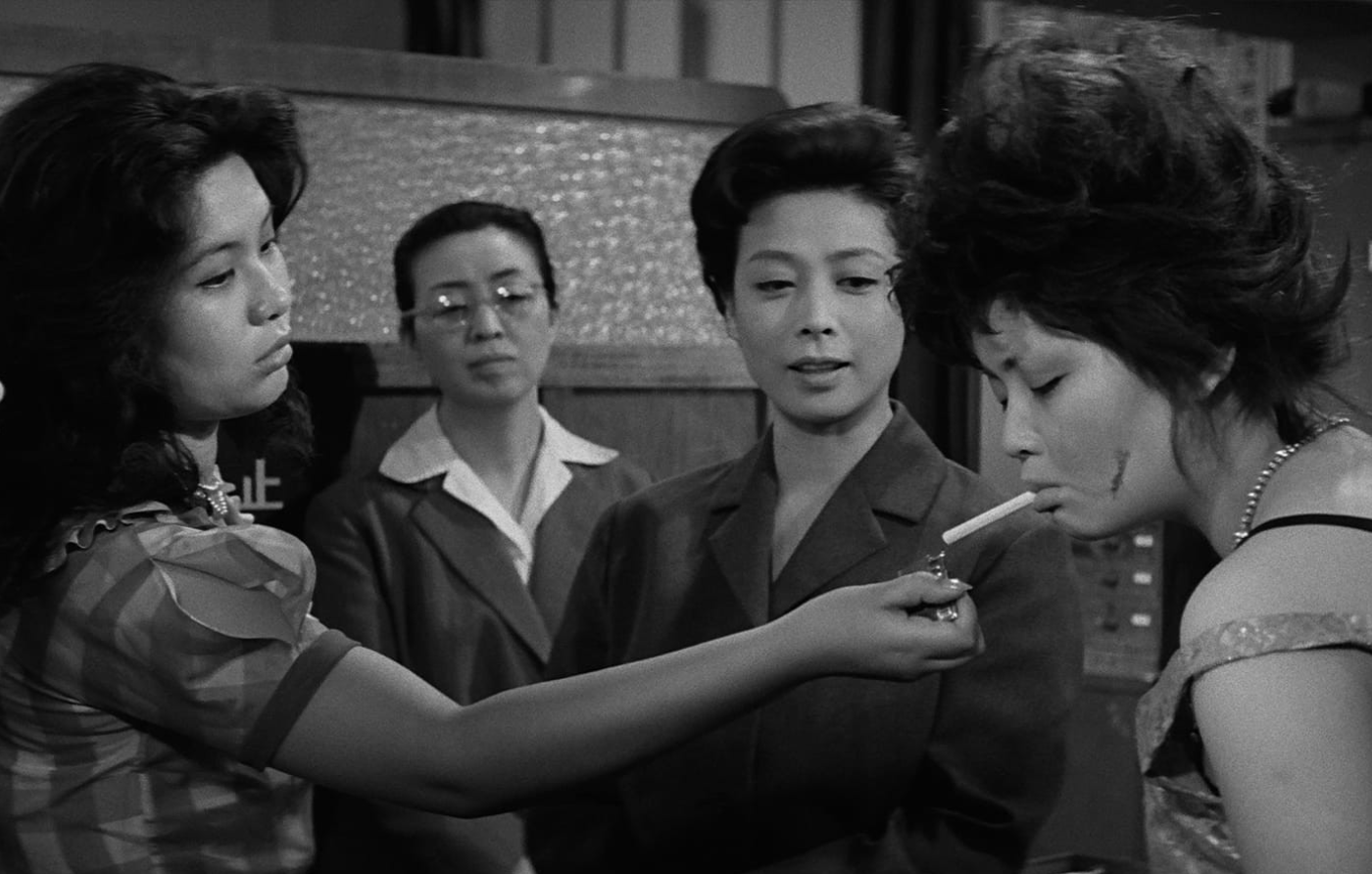
Kinuyo Tanaka · 93m · DCP
Tanaka reteamed with female scriptwriter Sumie Tanaka for this bracing look at former sex workers detained in correctional centers that are supposed to reform them. The film follows Kuniko, who tries the straight life but in the face of extreme social prejudice finds she can’t outrun her past. Rejecting moralizing and easy answers, Girls of the Night is one of Tanaka’s most powerful and subversive films.
Thursday, May 9th 7:00PM
Love Under the Crucifix (1962)
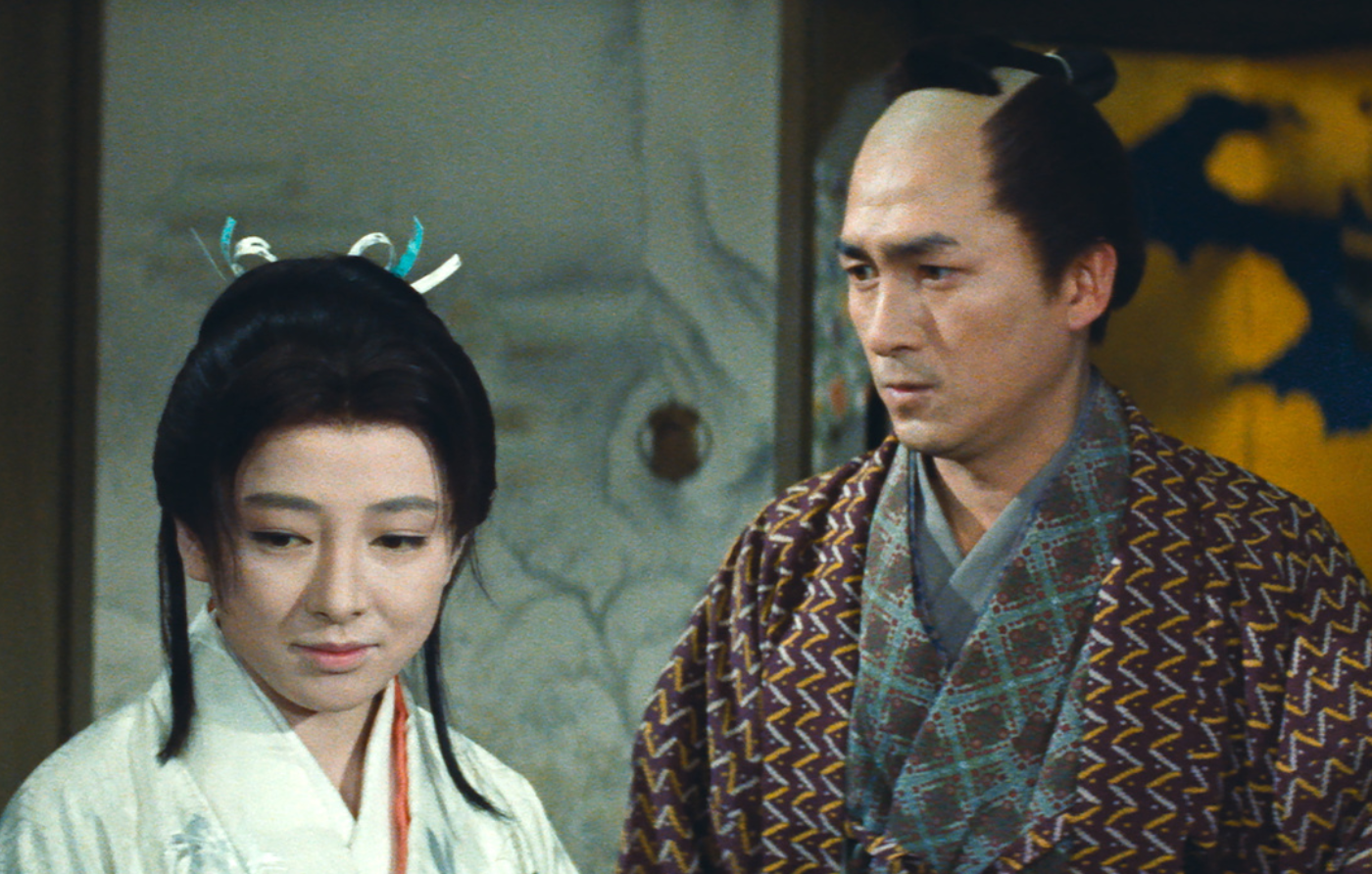
Kinuyo Tanaka · 102m · DCP
Tanaka’s final directorial project is a tale of doomed love and religious persecution set in 16th-century Japan. Filmed in ravishing color and widescreen, Love Under the Crucifix tells the tragic story of a romance between the strong-willed daughter of a tea master and a married samurai. Produced by an indie film company founded by women, this is Tanaka’s most erotic film, as well as her most formally audacious.






